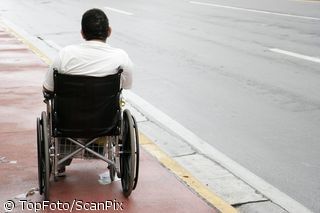Govt Net Snoopers Charter slammed.
Published:
14 September 1999 y., Tuesday
The IT industry has responded to Government proposals for increased Internet surveillance with a mixture of worry and irritation. The plans would mean a considerable extension of police powers in the UK, and as many as five times the current number of tapping warrants being issued. The plans, outlined in the government document "Interception of Communications In the UK", would require ISPs to be able to intercept one telephone line in every 500 that they operate, in essence providing a back door for the government to monitor private transmissions. Malcolm Hutty, director of civil liberty group Liberty describes the proposals as "Hideously expensive, technically unworkable, and a threat to civil liberties." Jack Straw, the Home Secretary, says in the introduction to the document that interception "..plays a crucial role in helping law enforcement agencies to combat criminal activity.." Most intercepted messages will be encrypted - at least it will be if the criminal has any sense. Decryption takes time, maybe weeks, rendering most intercepted information past its use by date. Demon Internet estimates that the infrastructure needed to fulfil the governments wishes would cost them more than one million pounds initially, and upgrades every year could be as much as 15 per cent of that again.
Šaltinis:
Internet
Copying, publishing, announcing any information from the News.lt portal without written permission of News.lt editorial office is prohibited.
The most popular articles
 Ensuring that women are protected from physical, sexual or psychological abuse if they flee abroad is what lies behind the proposed European Protection Order.
more »
Ensuring that women are protected from physical, sexual or psychological abuse if they flee abroad is what lies behind the proposed European Protection Order.
more »
 Remnants of Tropical Storm Agatha dumped more rain across Central America, killing at least 73 people in the region, and forcing scores of others to flee their homes.
more »
Remnants of Tropical Storm Agatha dumped more rain across Central America, killing at least 73 people in the region, and forcing scores of others to flee their homes.
more »
 Ninety-three-year old Lim Guan Siew looks back, with regret, on her experience of the long-dispelled Chinese custom of foot-binding.
more »
Ninety-three-year old Lim Guan Siew looks back, with regret, on her experience of the long-dispelled Chinese custom of foot-binding.
more »
 Ahead of the 2010 No Tobacco Day (Monday 31st May), the European Commission unveils the results of a Eurobarometer survey which shows that a strong majority of EU citizens support stronger tobacco control measures.
more »
Ahead of the 2010 No Tobacco Day (Monday 31st May), the European Commission unveils the results of a Eurobarometer survey which shows that a strong majority of EU citizens support stronger tobacco control measures.
more »
 Enviromentalist and endurance swimmer Lewis Pugh puts his body to the test in thin air and cold water to highlight shrinking glaciers in high mountain ranges.
more »
Enviromentalist and endurance swimmer Lewis Pugh puts his body to the test in thin air and cold water to highlight shrinking glaciers in high mountain ranges.
more »
 It’s a dog’s life for the 1,500 unwanted strays who spend their days in a slum-like shelters in Brazil’s southern city of Caxias do Sul.
more »
It’s a dog’s life for the 1,500 unwanted strays who spend their days in a slum-like shelters in Brazil’s southern city of Caxias do Sul.
more »
 Three resolutions on the situation in Thailand, the pre-election climate in Burma and religious freedom in Pakistan were adopted by the European Parliament in Strasbourg on Thursday.
more »
Three resolutions on the situation in Thailand, the pre-election climate in Burma and religious freedom in Pakistan were adopted by the European Parliament in Strasbourg on Thursday.
more »
 Growing numbers of children enroll in kung-fu schools to learn self-defense techniques after a series of school attacks in recent weeks spark wide-spread concern in China.
more »
Growing numbers of children enroll in kung-fu schools to learn self-defense techniques after a series of school attacks in recent weeks spark wide-spread concern in China.
more »
 Homosexuality in the military can be a thorny issue around the world, with gay and lesbian soldiers often hiding their sexual preference out of fear.
more »
Homosexuality in the military can be a thorny issue around the world, with gay and lesbian soldiers often hiding their sexual preference out of fear.
more »
 European Commission Vice-President Viviane Reding will urge EU Member States to swiftly ratify the UN Convention on the Rights of Persons with Disabilities during a May 19 Ministers’ meeting in Zaragoza, Spain.
more »
European Commission Vice-President Viviane Reding will urge EU Member States to swiftly ratify the UN Convention on the Rights of Persons with Disabilities during a May 19 Ministers’ meeting in Zaragoza, Spain.
more »